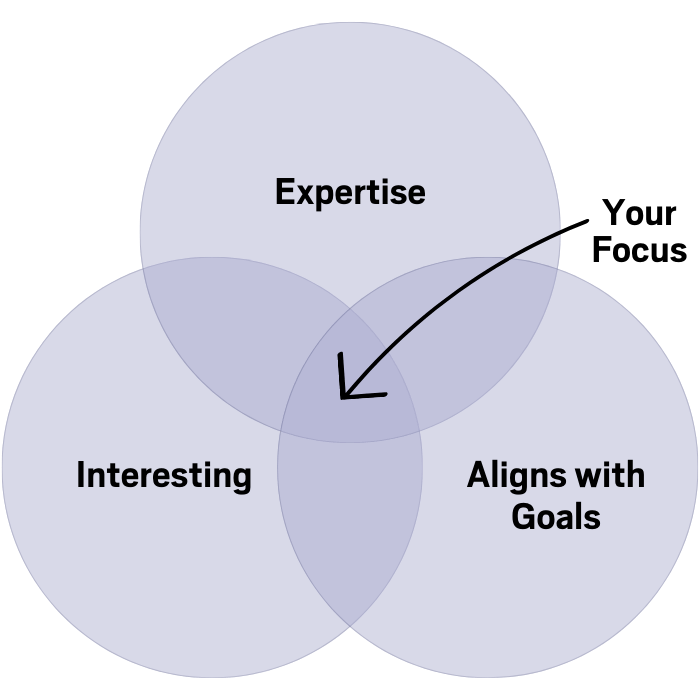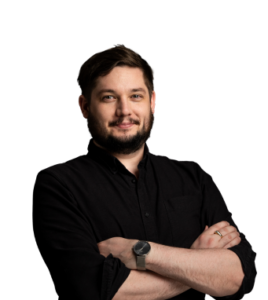Social media is one of the most powerful tools the average person can use to spread ideas, build a business, or expand their professional network. This is even true for chemistry and life science social media – you can use these platforms to share your research, keep up with advancements in the field, and find opportunities for collaboration. In fact, it’s estimated that over 4 billion people are using social media, so you are bound to find your audience there somewhere!
But where do we begin? Social media changes so rapidly it can feel intimidating. Luckily there are certainly universal tips that will help you no matter what. This guide will explain how to get started on social media for scientists.
What Are Your Goals?
Before you even set up a personal or business social profile, it’s important to map out your priorities. Take a step back and think through this seemingly simple question: what are you trying to accomplish?
Social Media Goals to Consider
Here are some possibilities:
- Launch a business
- Network with others
- Keep up with literature trends
- Draw attention to your research
- Raise awareness about your brand or a social issue
How you spend your time on social media should be aligned with your objectives. For example if your goal is to develop your professional network, you should spend plenty of time reading and commenting on posts from others in a similar spot in their career as you. On the other hand, if you want to start a business, you should prioritize creating content that will attract potential clients.
You do not need to have a single goal at first, but more focus will generally lead to better results. It will also significantly impact how you will engage in social media and what network you use.
Picking a Platform
For several years, there were three main social media networks: Facebook, Twitter, and Instagram. These days the social media landscape is constantly shifting. While there are a lot of networks, it is usually best to pick one and focus your energy there. It takes a lot of effort to master even one platform, and spreading yourself too thin is a recipe for limited impact and burnout.
Which network should you choose?
Here are some factors to consider:
- Most common types of content: Instagram likes images, TikTok likes short videos, X (formerly Twitter) and Threads likes short text, etc. Pick a platform that aligns with the content you want to create.
- Your audience: who are you trying to reach, and which platform do they tend to use the most? As the saying goes, fish where the fish are. Audience research tools such as SparkToro may be helpful here.
- Level of moderation: X is permissive, TikTok is strict, and everything else falls in the middle. While most science-related content will be acceptable anywhere, you shouldn’t build on a platform where you disagree with the underlying values.

You ultimately want to find a platform that you enjoy using. Social media is a marathon, not a sprint, and staying active on a network you don’t like is hard. It will feel strange when you start on a new platform, but if you still aren’t enjoying the network after a month or two, it probably isn’t a good fit for you.
LinkedIn is a good choice if you want to get involved in chemistry or life science social media. It is a professional social platform, which means most folks are looking to network or learn about industry trends.
LinkedIn allows for a wide range of content, so you can be flexible. Profiles are also connected to an employer or school, which means people rarely engage in harassment or share inappropriate content.
Finding Your Focus
Now that we have picked a platform, it’s time to choose a focus.

Why is this necessary? Let’s imagine two accounts. The first one jumps between medicinal chemistry, astrophysics, geoengineering, and more. The second one focuses only on medicinal chemistry.
In theory, the first account should have broader appeal because it covers a wider range of topics. In practice, people mostly prefer following specialists because they want to learn from and connect with real experts. Who would you be more likely to connect with if you only cared about medicinal chemistry? Even if you did follow the generalist account, you might unfollow them once you realize most of their content isn’t relevant to you.
How do you pick a focus? This will ultimately depend on your priorities. Start by considering the intersection of what you are interested in, know a lot about, and aligns with your goals.
It is also best to have a consistent tone and voice. If one post is silly, another serious, and the next is provocative, your followers might find this unusual. Some range is normal, but you shouldn’t sound like a different person each time you log on.
While a consistent topic and tone are good, you shouldn’t be a one-dimensional robot. You may be an expert in materials engineering or theoretical chemistry, but you are still a human. If you want, post about movies, technology, work, family, or hobbies! In fact, #ChemistsWhoCook on X was born out of chemists who share a passion for the culinary arts.
Finding a balance between the personal and professional will probably take experimentation – remember your objective and ensure your approach makes sense.
Posting About Politics
Politics is a more nuanced issue. Everyone is entitled to their opinions, and you can use social media to complain about or celebrate the day’s news. In fact, there are plenty of political topics where science plays a role – having experts engage with the public is vital!
But be thoughtful about how you discuss politics online. If you are building your scientific reputation online, you should use your real name and photo, meaning any comments you make could get back to your company. While there are plenty of people online who make comments that are vicious or crude, you need to maintain professionalism.
Ask yourself, “What would my boss/client say if they saw this post?” If they would be unhappy, you should keep it in your drafts.
Unfortunately, some people – especially minorities and women – are harassed on social media, particularly when sharing political opinions. By sticking to social networks with stricter moderation, you can hopefully protect yourself and business from this type of abuse.
Building Your Social Network of Scientists
Now that you have a plan, what should you actually do? The specifics will depend on your goals and the platform you are using, but some general tips will be helpful no matter what.

First, remember that this is social media. Do not use your account only as a megaphone. Find people who fit your target audience, follow them, and start commenting, liking, and sharing their material. Over time you will build relationships, which should lead to more engagement on your posts. When people comment on your posts, be sure to respond!
Avoid being too pushy or promotional. If you only post about how amazing your products are or how clever your research is, people will find you annoying. Don’t “pitch slap” people, where you immediately try to sell something after connecting.
Consistency is also key. You need to show up on your network regularly to build a following. The optimum regularity varies by platform, but the more often you post, the better. When you start, you should set a simple goal to avoid burnout and ramp up frequency over time.
But it’s not enough to show up – you must deliver quality content to your followers. What would your target audience be interested in? As a scientist on social media, you will need to balance how technical to be. Sharing cutting-edge scientific results can be interesting, but even experts don’t like posts packed with technical jargon.
Finally, you should experiment! As a scientist, you should understand that trial and error is the key to improvement. Of course, you can’t run a double-blind clinical trial on your social media followers (no matter how much you want to), but you can try things out, review results, iterate, and figure out what your audience responds to.
Want to see how science companies are using social media? Check out these examples.



















